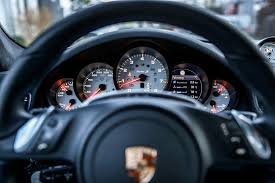The Minister of Ecological Transition Nicolas Hulot "announces the end of the sale of gasoline and diesel cars by 2040".
Nicolas Hulot presents this as a "real revolution". " We are announcing the end of the sale of gasoline and diesel cars by 2040, " said the Minister of Ecological Transition on Thursday, presenting his "Climate Plan ". "The conditions are there, our own automakers have in their boxes enough to feed and embody this promise," he said. But is it really realistic?
The manufacturers assure to be ready. On the manufacturers side, in any case, it is assured that yes. "Tricolor brands already dedicate a third of their research budget to the development of electric, hybrid or hydrogen engines," said François Roudier, communications director of the French Automobile Manufacturers' Committee (CCFA), contacted by Europe 1. According to He, the builders are ready. Renault-Nissan is today the world's leading electric and also ensures not be frightened by the lens. The same goes for PSA, which is working on the release in two years of six vehicles 100% electric.
Prices should be aligned in 2030. The real challenge for builders remains the price. The latter are hoping to sell short-term electric cars under 20,000 euros to make them attractive, whereas today they represent only 1% of the market (and about 4% for the hybrid). But on the price, the challenge does not seem insurmountable either. Thanks to the advances in technology and the increase of the offer, driving by electric car (purchase of the vehicle and recharge included) should be cheaper than with a gasoline-powered automobile in 2024, and with A diesel in 2030, according to a recent European study commissioned by Beuc, the European Consumer Association.
Only uncertainty: the number of terminals . But it is necessary that the infrastructures follow. In short, it will take a blow of accelerators on the installation of electrical terminals. The Energy Transition Act plans to reach 7 million load points in 2030 (public bollards + private parking). With such a trajectory, the objective zero-car thermal engine sold in 2040 is largely attainable, according to various studies on the issue. The catch? Constructing an electric terminal is expensive (about 150 million euros the 15,000). And government promises are rarely kept. Of the 75,000 terminals that should have been installed on the public road between 2010 and today, only 15,000 were installed.
A promise already made abroad. However, Nicolas Hulot's promise is not utopian in view of the objectives set by our neighbors. In Germany, Norway or the Netherlands, the sale of 100% thermal vehicles will be prohibited from ... 2030, 10 years earlier than the target set by France. Same in India, where the government announced a similar measure a few months ago. France, however, is 23 years to achieve its goal. A delay that allows time to put double butchers on the infrastructure side. Provided that the different governments do not pass the "hot potato" by 2040.